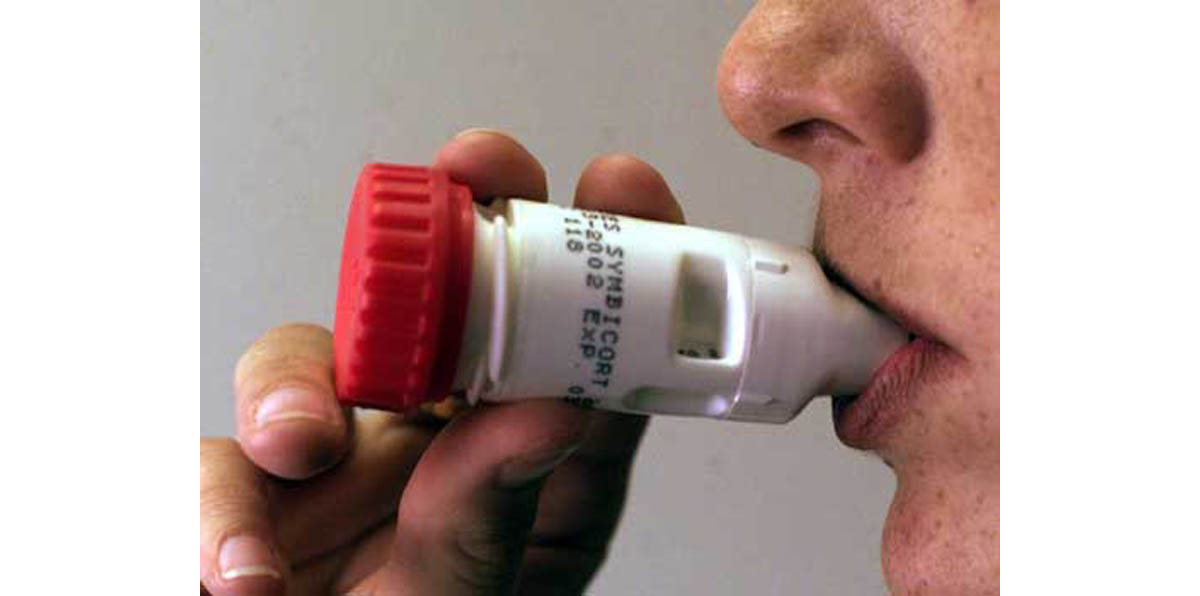Table of Contents
Asthma is a chronic disease of the respiratory system in which the airway sometimes constricts and becomes inflamed. The respiratory lining produces excessive amounts of thick mucus in people who live with asthma, often in response to one or more specific environmental triggers.

What triggers these asthma attacks?
Well, the answer to this question is not easy to give. Theoretically, there are many possible triggers, and yet every person reacts individually, so, there are simply no rules. Asthma attacks may be triggered by such things as exposure to an environmental stimulant, cold air, warm air, moist air, exercise or exertion, or emotional stress. Fortunately, all these symptoms of asthma, which can range from mild to life-threatening, can usually be controlled with a combination of drugs and environmental changes. Of course, the most effective way to control your asthma is to avoid the triggers.
Asthma signs and symptoms
While in some individuals asthma is characterized by chronic respiratory impairment, in others it is an intermittent illness marked by episodic incidents. It is an extremely widespread disease. Approximately 14 million adults and 6 million children in the U.S. have asthma.
An acute exacerbation of asthma is medically known as an asthma attack. These asthma attacks can be mild, symptomatic, asymptomatic, or severe.
The clinical characteristics of the most common form of asthma attack are:
- Shortness of breath (dyspnea)
- Wheezing
- Stridor (a high-pitched whistling sound while breathing)
- Cough
Signs of an asthmatic episode, which is milder than an attack, include:
- Wheezing
- Rapid breathing (tachypnea)
- Prolonged expiration
- A rapid heart rate (tachycardia)
- Rhonchous lung sounds (audible through a stethoscope)
- Over-inflation of the chest
As we’ve said earlier, sometimes asthma attacks can be extremely serious. During these kinds of attacks the accessory muscles of respiration, especially sternocleidomastoid and scalene muscles of the neck may be cramped.
During very severe attacks, an asthma patient can:
- Turn blue from lack of oxygen
- Experience chest pain
- Experience even loss of consciousness
Asthmatic aura
A number of asthmatic patients claim to be able to predict when an attack will happen because they experience something they call the “asthmatic aura”. Just before loss of consciousness, sometimes a patient will feel numbness in the limbs, and the palms may start to sweat. The patient's feet may become icy cold.
Triggers of asthma
What exactly triggers asthma? As previously mentioned, every person has their own triggers.
There are many possible asthma triggers and some of the most common are listed below:
- Allergens
- Irritants such as tobacco smoke, strong odors
- Gastrointestinal reflux disease (GERD)
- Emotional anxiety
- Medications
- Foods
- Weather changes
- Viral or sinus infections
- Exercise
Allergens
These are different types of irritating substances that can be found all around us.
Some of the most common allergens that people with asthma may encounter in the environment are:
- House dust mite
- Pollens
- Molds
- Animal dander
- Cockroach droppings
- Food
If your asthma is triggered by allergens, simply avoiding them would be a much better plan than to use tons of medications to treat your symptoms. Finding ways to rid your home of allergens is generally very possible, but you cannot always control what allergens you come across elsewhere.
Irritants
Asthmatic lungs aren’t as healthy as those of other people. This is why inflamed asthmatic airways are hyper-sensitive to environmental irritants.
Some of the most common environmental irritants are:
- Tobacco smoke, wood smoke, chemicals in the air and ozone
- Vapors, dust, gases or fumes
- Strong odors or sprays such as perfumes, household cleaners, hairspray, cooking fumes, paints or varnishes
- Coal dust, chalk dust or talcum powder
Also, in rare cases, even simple changing weather conditions, such as changes in temperature and humidity, barometric pressure or strong winds can cause severe asthma attacks. This is important because such irritants can hardly be avoided.
Infections
Some viral infections such as colds or viral pneumonia can trigger or aggravate asthma, especially in young children. Initially, experts were not sure about this claim, but after several studies done on this matter, it is now considered a proven fact. In the modern age, COVID-19 is an important concern as it can greatly exacerbate asthma symptoms as well as posing its own risk.
Exercise
Sometimes strenuous physical exercise can also trigger attacks.
Some examples of activities which can trigger asthma are:
- prolonged mouth breathing
- diving for a long time
- exercising in cold, dry air
- medium- to long-distance running
Reflux disease
The gastro-esophageal reflux disease (GERD) is a condition in which stomach acid flows back up the esophagus. Via this act, asthma can also be activated. The most common symptoms of GERD are:
- severe heartburn
- belching
- night asthma
- increased asthma symptoms after meals or exercise
Medications and food
Certain types of medication can cause asthma attacks in some patients. Some of the most common asthma trigger medications include Aspirin (or other NSAIDS such as ibuprofen®) and beta-blockers. Aslo, certain types of food or food additives can trigger asthma symptoms. Some of the most common asthma triggers are milk, eggs, peanuts, tree nuts, soy, wheat, fish, and shellfish.
Emotional anxiety
For a long time experts thought that asthma was in fact a psychological disorder, since it was known to happen to people under stress. Now, it has been proven not to be an emotional disorder, although emotions can trigger it. Anxiety and nervous stress probably cause fatigue, which may also increase asthma symptoms and aggravate an attack.

